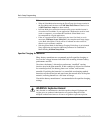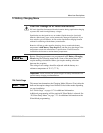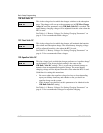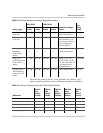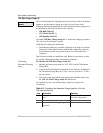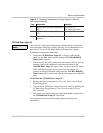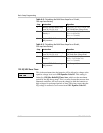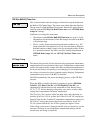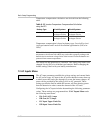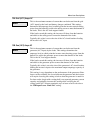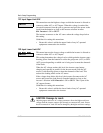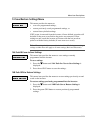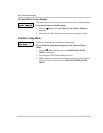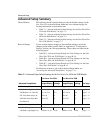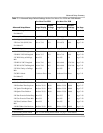
Basic Setup Programming
6–26 976-0043-01-02
Temperature compensation calculations are derived from the following
table:
Temperature compensation is based on battery type: 5 mv/cell for Lead
Acid
type batteries and 2 mv/cell for alkaline type batteries (NiCad or
NiFe).
The default for this menu item is LeadAcid. This setting only needs to be
changed if using NiCad or Alkaline type batteries. Before changing the
default settings, check with your battery manufacturer.
13 AC Inputs Menu
The AC input parameters establish the voltage settings and current limits
for AC power usage. AC input is the AC power that the inverter draws on
to either power the loads (pass through) or power the battery charger. AC
power can be provided by the utility grid or an AC generator. These
settings provide the limit at which the inverter will start drawing power
from the batteries in order to meet the demand of the AC loads.
Configuring the AC inputs includes determining the following parameter
values. These settings are programmed into 13 AC Inputs Menu under
the following menu items:
• 13A Grid (AC1) Amps
• 13B Gen (AC2) Amps
• 13C Input Upper Limit Vac
• 13D Input Lower Limit Vac
Table 6-10
Inverter Temperature Compensation Calculation
using the BTS
Battery Type 24-volt Systems 48-volt Systems
Lead Acid 0.060 volts (60 mV)
per degree Celsius
0.120 Volts (120 mV)
per degree Celsius
NiCad 0.040 volts (40 mV)
per degree Celsius
0.080 volts (80 mV)
per degree Celsius
Note: If the battery temperature is allowed to fall to extremely cold
temperatures, the inverter with a BTS may not be able to properly recharge cold
batteries due to maximum voltage limits of the inverter. Ensure the batteries are
protected from extreme temperatures.



